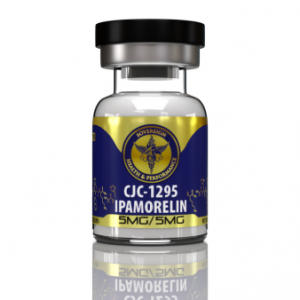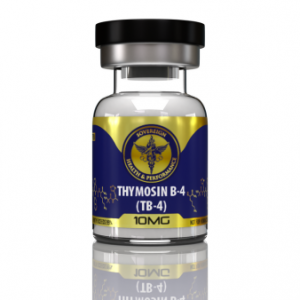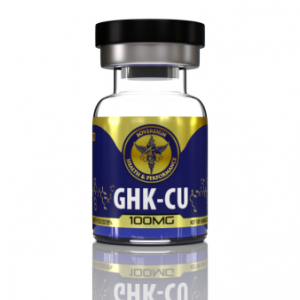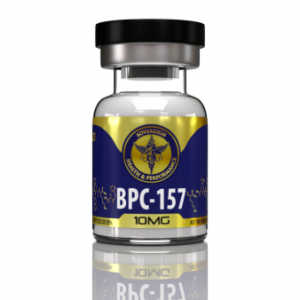Understanding Arthritis and Peptide Therapies
Executive Summary: Understanding Arthritis and Peptide Therapies
Arthritis is a debilitating condition affecting millions globally, characterized by joint inflammation, pain, and stiffness. It poses a significant risk to athletes, whose rigorous physical activity increases the likelihood of osteoarthritis due to the wear and tear of cartilage. Joint injuries also heighten arthritis risk, as they often lead to chronic inflammation and cartilage degradation. For athletes, managing arthritis is critical to preserving both performance and career longevity.
Peptide therapies offer a promising avenue for managing arthritis by promoting tissue repair, reducing inflammation, and potentially regenerating damaged cartilage.
While peptide therapies offer symptom relief and can slow arthritis progression, they do not cure the disease. However, their role in injury prevention and healing may help reduce the likelihood of arthritis in athletes, making them an essential tool in managing this chronic condition.
In conclusion, peptides provide a valuable addition to traditional arthritis treatments, enhancing recovery and improving joint health. Though not a cure, they represent a forward-thinking approach to managing arthritis, particularly for athletes.
Table of Contents
Understanding Arthritis and Peptide Therapies
Arthritis is a broad term used to describe a group of conditions characterized by inflammation, pain, stiffness, and swelling in the joints. It is one of the leading causes of disability worldwide, affecting millions of people across all age groups, including athletes. For athletes, the mere mention of arthritis can be particularly scary, the condition itself debilitating, as not only does it impact performance but can also lead to early retirement from sports. For pro athletes, early retirement can cut millions of dollars off their earning power.

Athletes are often at a higher risk for certain types of arthritis, such as osteoarthritis, due to the repetitive stress and high-impact activities associated with their sports. The constant strain on joints can accelerate the wear and tear of cartilage, leading to earlier onset and more severe symptoms. Additionally, previous injuries like ligament tears or fractures can predispose athletes to arthritis, as damaged joints are more prone to inflammation and degradation over time.
Rapid and effective injury healing can lower the risk of developing subsequent arthritis by minimizing joint damage, reducing chronic inflammation, and preserving cartilage. Faster recovery prevents compensatory movement patterns that can stress other joints, further reducing the likelihood of arthritis. Peptide therapies that accelerate healing may thus be particularly beneficial in preventing arthritis, especially in athletes.
Despite the diversity of arthritis types, they share common symptoms such as chronic joint pain, reduced mobility, and the progressive degradation of joint tissues, particularly cartilage. The primary cause of arthritis-related symptoms lies in the inflammation of the joints. Inflammation is a natural response of the immune system to injury or infection, but in arthritis, this response becomes chronic and leads to the deterioration of joint tissues. The breakdown of cartilage—the smooth, rubbery tissue that cushions the ends of bones in joints—is a key factor in the development of arthritis. As cartilage wears away, bones begin to rub against each other, causing pain and further inflammation. Additionally, in some forms of arthritis, the immune system mistakenly attacks the body’s own joint tissues, exacerbating inflammation and leading to joint damage.

While there is no cure for arthritis, several treatments aim to manage symptoms and slow the progression of the disease. Among these, peptide therapies have gained attention for their potential to not only alleviate symptoms but also promote tissue repair and regeneration. For athletes, peptide therapies offer a promising approach to managing arthritis by potentially accelerating recovery from joint injuries, reducing inflammation, and even aiding in the regeneration of damaged cartilage, which can help extend athletic careers and improve quality of life.
Peptides for Arthritis Management
BPC-157 (Body Protection Compound-157)
BPC-157 is a synthetic peptide derived from a protein found in the human stomach. It has gained significant recognition for its potent healing properties, particularly in the context of arthritis. BPC-157 is known for its ability to accelerate the healing of tendons, ligaments, and cartilage, which are crucial in managing arthritis. Its anti-inflammatory effects and promotion of angiogenesis (the formation of new blood vessels) support the healing of damaged tissues and reduce joint inflammation. Research suggests that BPC-157 can significantly alleviate arthritis symptoms by promoting cartilage repair and reducing inflammation, offering a promising option for those with arthritis.
Supporting Research:
- Journal of Orthopaedic Research: “BPC-157 Reduces Joint Inflammation and Promotes Cartilage Repair in Animal Models.”
- Journal of Applied Physiology: “BPC-157 Facilitates Tendon Healing and Reduces Inflammation in Animal Models of Arthritis.”

Thymosin Beta-4 (TB-500)
Thymosin Beta-4 is a naturally occurring peptide in the human body that plays a vital role in tissue repair and regeneration. TB-500 has been extensively studied for its anti-inflammatory properties and its ability to enhance recovery from injuries, including those associated with arthritis. This peptide promotes cell migration and wound healing, which can help reduce joint inflammation and improve mobility. TB-500’s potential to modulate inflammatory responses and support tissue repair makes it a valuable tool in managing arthritis symptoms.
Supporting Research:
- Journal of Investigative Dermatology: “The Role of Thymosin Beta-4 in Accelerating Wound Healing and Reducing Scar Tissue Formation.”
GHK-Cu (Copper Peptide)
GHK-Cu is a copper-binding peptide with powerful anti-inflammatory and regenerative properties. It has been studied for its ability to repair damaged tissues and reduce oxidative stress, both of which are critical in arthritis management. GHK-Cu promotes collagen synthesis, essential for maintaining healthy joint cartilage, and has been shown to modulate gene expression in a way that supports tissue regeneration and reduces inflammation. These properties make GHK-Cu a promising candidate for easing arthritis symptoms, improving joint health, and reducing pain and stiffness.
Supporting Research:
- Biochimica et Biophysica Acta (BBA) – Molecular Cell Research: “GHK-Cu Modulates Gene Expression and Promotes Tissue Regeneration.”

CJC-1295 with Ipamorelin: Combined Peptide Therapy
This combination of peptides is known for stimulating the release of growth hormone, which can significantly improve tissue regeneration and repair. CJC-1295, a growth hormone-releasing hormone (GHRH) analog, and Ipamorelin, a peptide that stimulates growth hormone release, work together to increase the body’s natural growth hormone levels. This increase can promote the healing of joint tissues, improve cartilage health, and reduce inflammation, all of which are critical in managing arthritis. While more research is needed to fully understand their effects on arthritis, this peptide combination offers potential benefits for those looking to improve joint function and reduce arthritis symptoms.
Supporting Research:
- Journal of Clinical Endocrinology & Metabolism: “CJC-1295 and Ipamorelin: Growth Hormone Release and Implications for Tissue Repair.”
Ipamorelin: A Targeted Growth Hormone Secretagogue
Ipamorelin is a highly selective growth hormone secretagogue that stimulates the release of growth hormone (GH) from the pituitary gland. Unlike some other GH-releasing peptides, Ipamorelin is known for its specificity, targeting GH release without significantly affecting other hormones such as cortisol, prolactin, or aldosterone. This makes Ipamorelin a popular choice for individuals looking to increase GH levels with minimal side effects.
Ipamorelin’s key advantage is its ability to be used over extended periods due to its less suppressive nature, allowing for sustained benefits like enhanced tissue repair, muscle growth, and fat metabolism without disrupting the body’s hormonal balance. Unlike other peptides, it doesn’t significantly raise cortisol levels, reducing the risk of adverse effects such as increased abdominal fat or decreased bone density. This makes Ipamorelin a safer and more sustainable option for long-term growth hormone supplementation.
Supporting Research:
- A study published in the Journal of Clinical Endocrinology & Metabolism highlighted Ipamorelin’s effectiveness in increasing GH levels without significantly impacting cortisol or other hormone levels, underscoring its safety for extended use (Ghigo et al., 2001).
- Ghigo, E., Arvat, E., Muccioli, G., & Camanni, F. (2001). Growth Hormone-Releasing Peptides: Physiology and Clinical Applications. Journal of Clinical Endocrinology & Metabolism, 86(11), 5259-5264.

Symptom Relief vs. Potential Cure
The peptides discussed above primarily offer symptom relief for arthritis by reducing pain, inflammation, and joint stiffness. However, they also promote the repair and regeneration of joint tissues, which can effectively slow the progression of the disease and improve the overall quality of life for those affected. While these peptides do not cure arthritis or completely reverse its underlying causes, particularly in degenerative forms like osteoarthritis, they can partially reverse some joint damage. Additionally, when used to accelerate injury healing, they may lower the risk of subsequent arthritis. These peptides are most effective as part of a comprehensive treatment plan that may include lifestyle modifications, physical therapy, and other medical interventions.
Conclusion
Arthritis is a complex and debilitating condition marked by chronic inflammation and joint damage. While traditional treatments focus on managing symptoms, peptide therapies offer a novel approach by promoting tissue repair and reducing inflammation. Peptides like BPC-157, Thymosin Beta-4, GHK-Cu, and CJC-1295 with Ipamorelin show promise in alleviating arthritis symptoms and improving joint health. While they are not a cure, these peptides can be valuable components of a broader strategy to manage arthritis, providing relief and enhancing the quality of life for those living with this chronic condition. As with any treatment, it is essential to consult with a healthcare provider to determine the best approach for managing arthritis.
Research Peptides Mentioned in this Article
References
- Journal of Applied Physiology. “BPC-157 Facilitates Tendon Healing and Reduces Inflammation in Animal Models of Arthritis.”
- Journal of Orthopaedic Research. “BPC-157 Reduces Joint Inflammation and Promotes Cartilage Repair in Animal Models.”
- Journal of Investigative Dermatology. “The Role of Thymosin Beta-4 in Accelerating Wound Healing and Reducing Scar Tissue Formation.”
- Biochimica et Biophysica Acta (BBA) – Molecular Cell Research. “GHK-Cu Modulates Gene Expression and Promotes Tissue Regeneration.”
- Journal of Clinical Endocrinology & Metabolism. “CJC-1295 and Ipamorelin: Growth Hormone Release and Implications for Tissue Repair.”
Actual User Feedback
While scientific studies provide valuable data on the efficacy of peptides, anecdotal reports can offer insights into how individuals have personally responded to treatments. Here’s a summary of anecdotal experiences reported by users of peptides for arthritis:
BPC-157
User Reports:
- Many individuals with arthritis, particularly those with osteoarthritis, have shared positive experiences using BPC-157. Users often report reduced joint pain and improved mobility within weeks of starting the peptide. For example, some individuals who had chronic knee pain due to osteoarthritis noted significant relief and a return to activities like walking and light exercise without discomfort.
- In various online forums, such as Reddit and health-focused discussion boards, users frequently mention that BPC-157 helped them reduce reliance on pain medications, suggesting that the peptide may have both anti-inflammatory and healing properties.
Thymosin Beta-4 (TB-500)
User Reports:
- Anecdotal accounts from athletes and those with joint pain often highlight the use of TB-500 for its tissue repair and anti-inflammatory effects. Some users with arthritis have reported improvements in joint function and a reduction in stiffness, particularly after several weeks of consistent use.
- Users often combine TB-500 with other therapies or lifestyle changes, and many claim that the peptide helps speed up recovery from joint injuries, which can indirectly benefit those with arthritis by preventing further joint degeneration.
GHK-Cu
User Reports:
- GHK-Cu is sometimes mentioned in skin and anti-aging communities, with users noting its benefits for skin health and wound healing. Arthritis patients who have tried GHK-Cu report that it seems to help with joint pain and stiffness, although these benefits are often noted alongside other anti-aging effects.
- In particular, some users have mentioned using GHK-Cu in topical formulations or injectable forms to target specific areas of joint pain, with mixed but generally positive feedback regarding pain relief and improved mobility.
CJC-1295 with Ipamorelin
User Reports:
- This peptide combination is popular among bodybuilders and fitness enthusiasts for its growth hormone-releasing effects, which can lead to improved recovery and tissue repair. Some individuals with arthritis, particularly younger adults or those active in sports, have reported using this combination to manage symptoms. Users often describe better recovery from workouts, reduced joint discomfort, and improved sleep, which indirectly helps with arthritis management.
- However, the feedback is mixed, with some users experiencing significant benefits, while others report minimal changes in their arthritis symptoms, possibly due to varying responses to growth hormone therapy.
General Observations
- Consistency and Patience: A common theme in these anecdotes is the importance of consistency and patience. Many users report that it takes several weeks to notice significant improvements, and the benefits often increase over time.
- Combination with Other Therapies: Many individuals use these peptides alongside other treatments, such as physical therapy, dietary changes, or supplements, which can complicate attributing benefits solely to the peptides.
- Varied Responses: As with any treatment, responses to peptide therapy can vary widely among individuals. While some experience profound relief, others may see only moderate or no improvement, highlighting the importance of a personalized approach to arthritis management.
Disclaimer
Anecdotal evidence should be approached with caution, as it lacks the rigor and control of clinical trials. These personal stories provide insights but are not a substitute for professional medical advice or scientific research. Always consult with a healthcare provider before starting any new treatment, especially when using peptides, which may not be FDA-approved for arthritis treatment.





